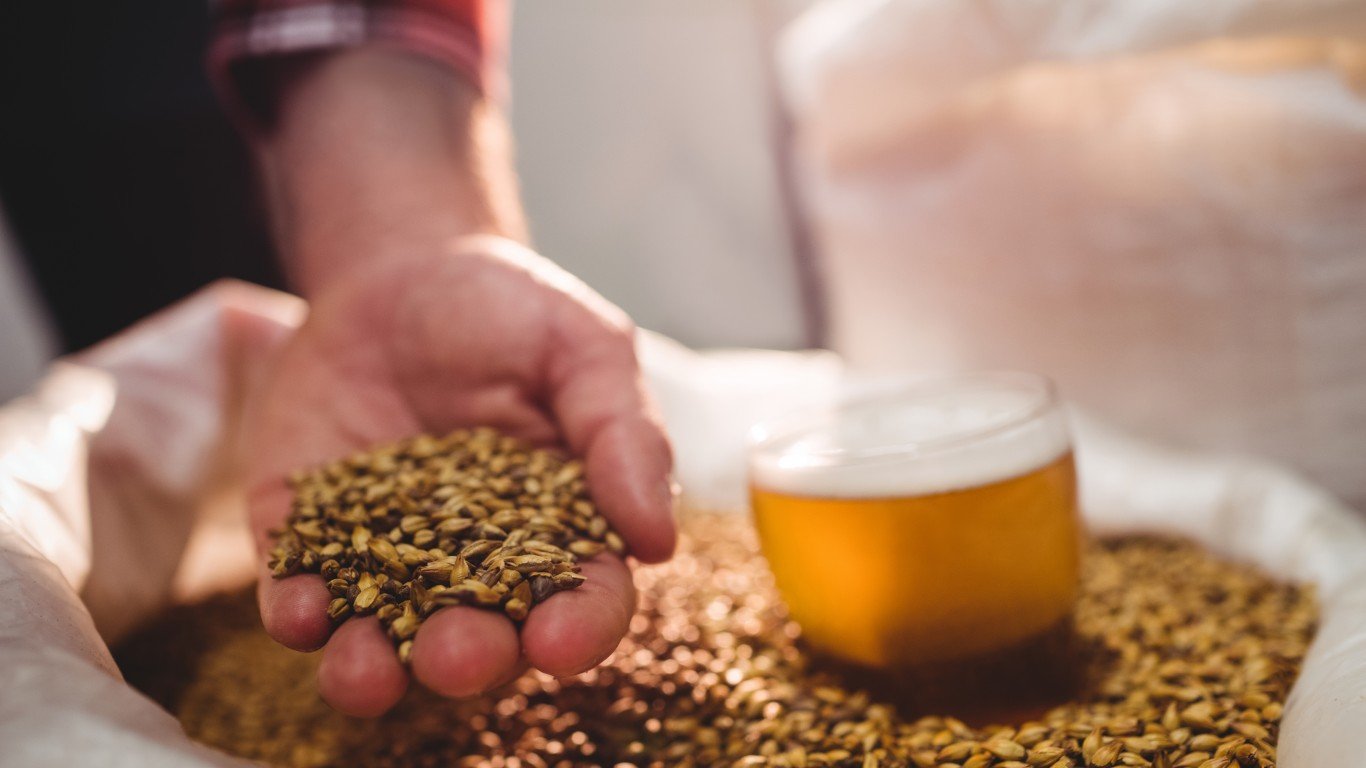Along with malted grain, yeast, and water, hops are an essential ingredient in beer – all beer. Members of the same botanical family as marijuana, hops are cone-like blossoms whose role in brewing is to give beer its characteristic bitterness and complex aromas (resin and citrus are common). They also help keep beer fresh, and affect how long it keeps its attractive head of foam. (These are the 25 best new beers in America.)
According to a story in The Drinks Business, a leading global drinks business publication, increased temperatures and drought in major hop-growing regions in both Europe and the Pacific Northwest have already started affecting crops. Changing climate conditions can also foster an increase in plant diseases. One study predicts that hop yields in Europe will have decreased as much as 18% by 2050.
And it turns out that hops aren’t the only potential problem. Though other grains can be used, the vast majority of beers worldwide are made with malted barley – typically spring barley in the U.S. Barley is ideal because it has a healthy ratio of starch to protein, promoting the formation of fermentable sugars – which is where the alcohol comes from. But barley, too, is susceptible to increased temperatures and lack of water. Winter barley, which would be less affected by heat, is a possible substitute, but brewers are unenthusiastic about its quality for their purposes.
Researchers are busy tackling these issues, developing heat-resistant hop varieties and trying to improve the quality of winter barley. (Winemakers face similar challenges and have begun planting grapes in regions that were traditionally too cool to grow good grapes, as well as experimenting with varietals better suited to hot weather.)
The Drinks Business story quotes Mirek Trnka, a professor at the Global Change Research Institute, however, as noting that “If we don’t act, we’re just going to…lose things that we consider not to be, for example, sensitive or related to climate change. Like beer.” (And these are 20 beloved foods that could disappear forever because is climate change.)
